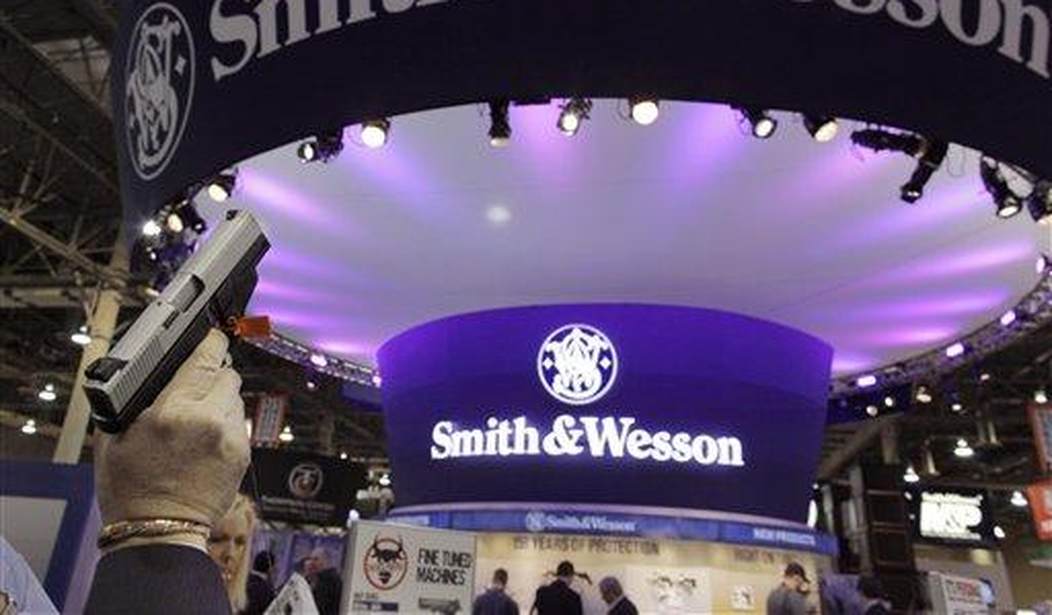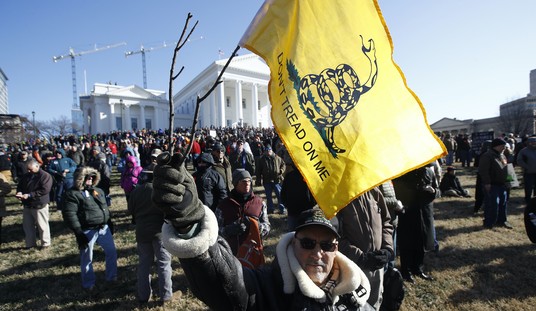When Smith & Wesson announced a couple of weeks ago that it’s moving its headquarters from Massachusetts to Tennessee, in large part because of the anti-gun hostility by lawmakers in Boston, the decision conjured up memories of the last time the company faced an existential threat to its existence; a wave of lawsuits filed against the corporation by anti-gun politicians and their allies in the gun control lobby, the Clinton administration’s effort to impose new restrictions on firearms manufacturers, and the company’s adoption of those standards in exchange for seeing those lawsuits disappear.
That was more than 20 years ago, and the resulting firestorm of controversy ended up with Smith & Wesson’s CEO being ousted, followed by the company’s sale and years of PR efforts from the new owners to undo the damage to the company’s reputation. Amazingly, however, that former CEO says he doesn’t have any regrets about his decision to work with the Clinton administration on voluntary gun control measures.
[Ed] Shultz said he thought at the time that other manufacturers would surely follow. Weren’t they under the same pressure? Didn’t they face 30 or more lawsuits? Those lawsuits, he said, generated millions in legal fees, and any one of them had the potential to implode the company.
The NRA, though, would have none of it. The organization’s reaction was as swift and vitriolic as Clinton had been conciliatory.
Today, Shultz says he’s still on friendly terms with NRA members and the organization’s leaders. He dismissed the allegations of overspending and the ongoing bankruptcy case as not important to the discussion.
While he said he has no regrets, Shultz is quick to point out that parts of the agreement with the Clinton administration are taken for granted today.
The only reason we know about gunmakers’ eye-popping sales figures is because the background check law has been on the books, unchallenged, since 1999.
And gun locks? Smith & Wesson includes them with its products. “The NRA even sells gun locks,” he says.
Yep, and it didn’t take any sort of agreement with the Clinton administration to bring that about.
Frankly, I’m amazed that Schultz still thinks shaking hands with the gun control lobby was a good idea, given the fact that it nearly led to Smith & Wesson going out of business.
“I still believe that there was a point there, before it became politicized,” Shultz says. “Those folks that really wanted more gun control and were willing to make modifications in the industry. We were awfully close to coming out with some agreements.”
He says firearms shouldn’t be in the hands of criminals and the mentally unwell. Reports of mass shootings affect him, he says, just like the stories affected him back when he was at Smith & Wesson.
“It wasn’t as if it couldn’t be done,” Shultz says. “Once it becomes politicized, you have to have a winner and a loser.”
Good lord. It was always a political issue, from the moment the first junk lawsuits were filed seeking to hold gun companies like Smith & Wesson responsible for the actions of criminals. Schultz’s reaction was also political; he was hoping to avoid continued harassment on the part of the gun control lobby and Democratic politicians by bending a knee and acquiescing to their demands.
Of course, it didn’t work out that way. The gun control lobby has continued its war on manufacturers over the past two decades, and the blowback from gun owners to Smith & Wesson’s deal ended up with Schultz being removed as CEO.
Faced with a new existential crisis, Smith & Wesson’s current leadership decided to push back and simply leave the state for the friendlier climate of Tennessee rather than roll over to the anti-gun lawmakers in Massachusetts who are pushing a bill to ban the manufacture of modern sporting rifles in the state. Kinda makes you wonder if Ed Schultz would have done the same, or if he would have simply chosen to exit the black rifle business altogether.
Schultz is right about one thing- in the political fight over the right to keep and bear arms there are winners and losers. But gun owners were the the losers in his agreement with the Clinton administration. There’s a reason why reaction to the company’s deal was so swift and strong; it was a bad deal for everyone else, even if it allowed the company to sidestep future junk lawsuits designed to bankrupt the organization. Schultz may wonder what could have been had other companies followed suit, but I think most gun owners are happy with the fact that the industry as a whole stood firm when Schultz caved.








Join the conversation as a VIP Member